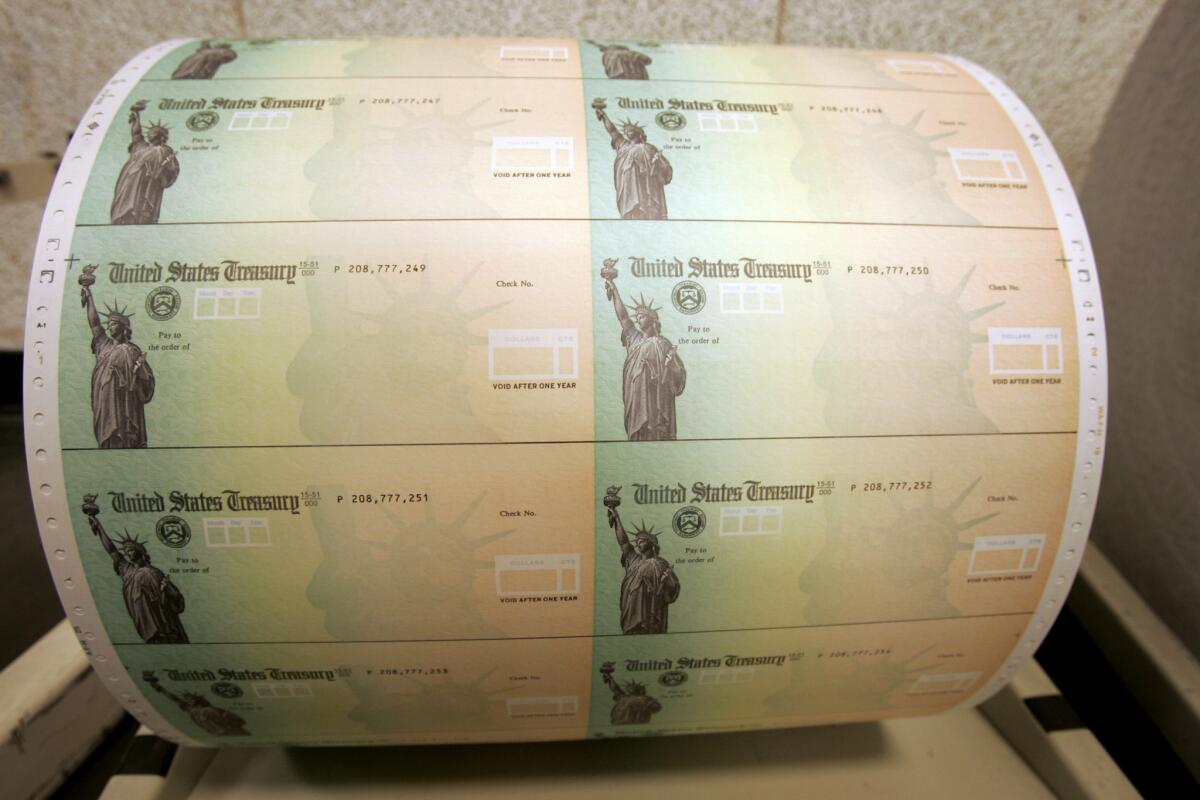America’s middle class knows it faces a grim retirement

- Share via
Wells Fargo did as much as it could to soft-pedal the findings of its fifth-annual Middle Class Retirement Survey, released Wednesday, but the horrific numbers speak for themselves.
“Saving for retirement is a formidable challenge for middle-class Americans,” the San Francisco-based bank says.
A formidable challenge? No kidding. More than a third of middle-class families aren’t saving anything in a 401(k), IRA or other vehicle, the survey found. For those 50 to 59 years old, it’s 41%.
“Nearly a third (31%) of all respondents say they will not have enough money to ‘survive’ on in retirement,” the bank says. “This increases to nearly half (48%) of middle-class Americans in their 50s.” The household income of respondents, who were polled for Wells by the Harris organization, ranged from $25,000 to $100,000; the median income was $63,000.
More cause for concern: For respondents aged 30 to 49, some 59% say they “plan to save later to make up retirement savings,” and 27% are not currently contributing savings to a retirement plan or account.
The idea that you can make up later what you fail to save today is, of course, a chimera. For one thing, saving doesn’t typically get easier as you grow older; you may be bringing more in as you advance in a career, but you’re shoveling out more, too -- child-rearing expenses, college tuition, possibly even support for aging parents. And the longer you put off launching a retirement fund, the less you benefit from the magic of compound interest or long-term investment growth.
No wonder that 68% of the survey’s respondents admitted that saving for retirement is “harder than I anticipated.”
There’s little new in these findings. They echo the findings of last year’s installment in the Wells Fargo series, when more than a third of respondents said they expected to work at least until 80 to have enough to retire on.
The findings also echo those of other studies of retirement security, notably Boston College’s retirement risk index, which showed a sharp increase after the 2008 recession -- the risk that households would be unable to maintain their pre-retirement standard of living after retirement soared from 44% in 2007 to 53% in 2010. BC’s authoritative Center for Retirement Research blames several factors, including the huge decline in home and stock market values, which have been especially hard to recapture for households closer to retirement.
There’s also the systematic evisceration of defined-benefit pensions, which are shielded from market downturns, and their replacement by 401(k)s and other such defined-contribution plans, which impose all the risk of market misfortunes on the would-be retiree.
All this points ever more strongly to an inescapable solution to Americans’ retirement quandary: expanding Social Security. The program is immune from market influences, operates with rock-bottom administrative costs, and forces workers to place saving for retirement front and center.
Those who claim that increasing benefits is unnecessary because America’s retirees are secretly rich -- a notion recently bandied about by independent benefits consultant Sylvester Schieber and Andrew Biggs of the American Enterprise Institute -- may need to get out and meet middle-class workers more. They would learn very quickly that middle-class Americans aren’t laboring under the same misconceptions about their retirement prospects.
Keep up to date with the Economy Hub. Follow @hiltzikm on Twitter, see our Facebook page, or email mhiltzik@latimes.com.
More to Read
Inside the business of entertainment
The Wide Shot brings you news, analysis and insights on everything from streaming wars to production — and what it all means for the future.
You may occasionally receive promotional content from the Los Angeles Times.











